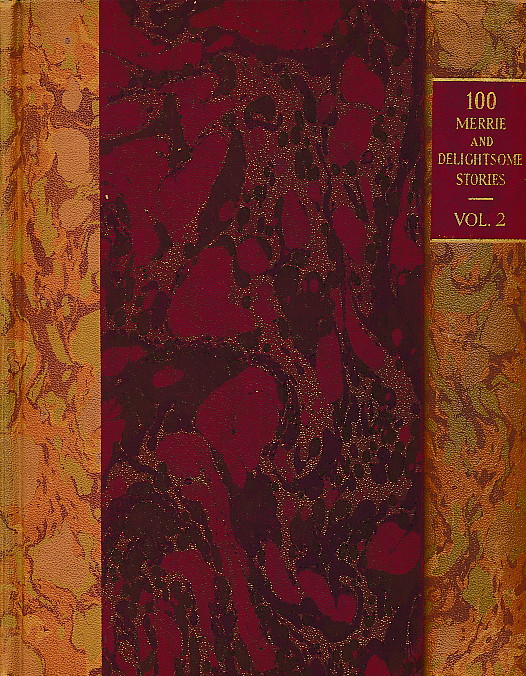One Hundred Merrie and Delightsome Stories. Les cent Nouvelles
Izvorna cijena bila je: €80,00.€60,00Trenutna cijena je: €60,00.
Na zalihi
| Težina | 1189 g |
|---|---|
| Format | 15 × 23 cm |
| Autor | |
| Izdavač | |
| Mjesto izdanja | Paris |
| Godina | 1899 |
| Broj stranica | 532 |
| Uvez | Tvrdi |
| Stanje knjige | Vrlo dobro |
One Hundred Merrie and Delightsome Stories (2 volumes) Les cent Nouvelles Douglas, Robert B. Published by Charles Carrington N.D. Publisher’s marbled boards and spine, gilt spine titles in red label, brown endpapers, gilt top page edges, deckle edges many uncut. Limited edition, one of 1250 copies for subscribers, this copy is number 31. No date, c. 1900-1910. English translation of 1899 French edition, great illustrations throughout. Purported a collection of short stories narrated by various persons at the court of Philippe le Bon, and collected together by Antoine de la Sale, the nouvelles are, according to the authority on French Literature—Professor George Saintsbury “undoubtedly the first work of literary prose in French … The short prose tale of a comic character is the one French literary product the pre-eminence and perfection of which it is impossible to dispute, and the prose tale first appears to advantage in the Cent Nouvelles Nouvelles.” The stories give a curious glimpses of life in the 15th century, providing a genuine view of the social condition of the nobility and the middle classes. M. Lenient, a French critic, says: “Generally the incidents and personages belong to the bourgeoisée; there is nothing chivalric, nothing wonderful; no dreamy lovers, romantic dames, fairies, or enchanters. Noble dames, bourgeois, nuns, knights, merchants, monks, and peasants mutually dupe each other. The lord deceives the miller’s wife by imposing on her simplicity, and the miller retaliates in much the same manner. The shepherd marries the knight’s sister, and the nobleman is not over scandalized. The vices of the monks are depicted in half a score tales, and the seducers are punished with a severity not always in proportion to the offence.” For four centuries 10 of the stories were credited to Louis XI. Modern scholars have since ascribed them to either Philippe le Bel or Comte de Charolais. In all, some thirty-two noblemen or squires contributed the stories, with some 14 or 15 taken from Giovanni Boccaccio, and as many more from Gian Francesco Poggio Bracciolini or other Italian writers, or French fabliaux, but about 70 of them appear to be original.
